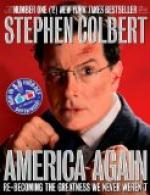I suppose he got a salary. No one ever troubled to ask. He was expected, and he came, and in our selfishness we did not concern ourselves beyond that.
It is men like the Fizzer who, “keeping the roads open,” lay the foundation-stones of great cities; and yet when cities creep into the Never-Never along the Fizzer’s mail route, in all probability they will be called after Members of Parliament and the Prime Ministers of that day, grandsons, perhaps, of the men who forgot to keep the old well in repair, while our Fizzer and the mail-man who perished will be forgotten; for townsfolk are apt to forget the beginnings of things.
Three days’ spell at Anthony’s, to wait for the Queensland mail-man from the “other-side” (another Fizzer no doubt, for the bush mail-service soon culls out the unfitted), an exchange of mail-bags, and then the Downs must be faced again with the same team of horses. Even the Fizzer owns that “tackling the Downs for the return trip’s a bit sickening; haven’t had time to forget what it feels like, you know,” he explains.
Inside to Anthony’s, three days’ spell, over the Downs again, stopping for another drink at that well, along the stage “that’s a bit off,” and back to the “kid’s game,” dropping mail-bags in twos and threes as he goes in, and collecting others as he comes out, to say nothing of the weary packing and unpacking of his team. That is what the Fizzer had to do by half-past eleven four weeks.
“And will go hopelessly on the spree at the end of the trip,” say uncharitable folk; but they do not know our Fizzer. “Once upon a time I was a bad little boy,” our Fizzer says now, “but since I learnt sense a billy of tea’s good enough for me.”
And our Fizzer is not the only man out-bush who has “learnt sense.” Man after man I have met who found tea “good enough,” and many more who “know how to behave themselves.” Sadly enough, there are others in plenty who find their temptations too strong for them—temptations that the world hardly guesses at.
But I love the bush-folk for the good that is in them, hidden, so often, carefully away deep down in their brave, strong hearts—hearts and men that ring true, whether they have “learnt sense,” or “know how to behave,” or are only of the others. But every man’s life runs parallel with other lives, and while the Fizzer was “punching along” his dry stages events were moving rapidly with us; while perhaps, aways in the hearts of towns, men and women were “winning through the dry stages” of their lives there.
CHAPTER XIII
Soon after the Fizzer left us the horse-teams came in, and went on, top-heavy with stores for “inside”; but the “Macs” were now thinking of the dry stages ahead, and were travelling at the exasperating rate of about four miles a day, as they “nursed the bullocks” through the good grass country.
Dan had lost interest in waggons, and was anxious to get among the cattle again; but with the trunks so near, the house growing rapidly, the days of sewing waiting, I refused point-blank to leave the homestead just then.




